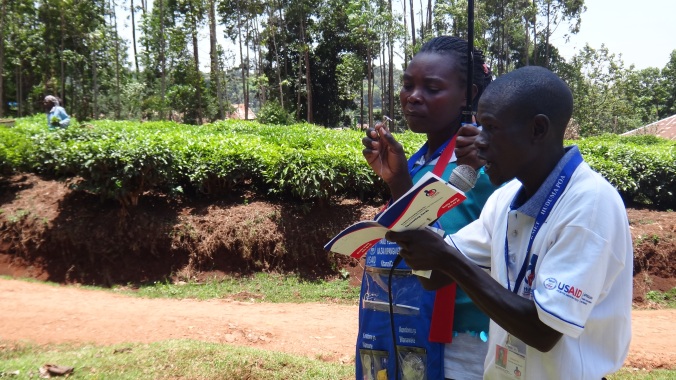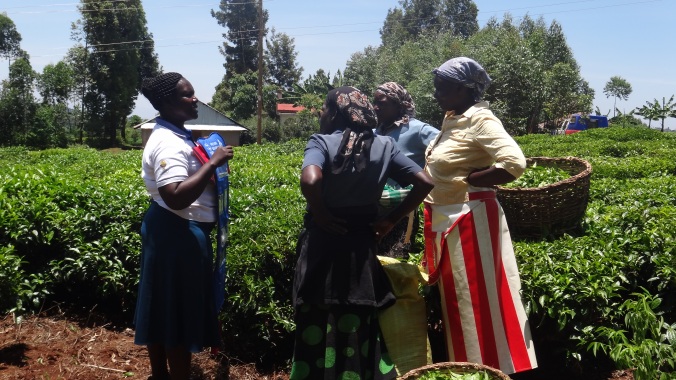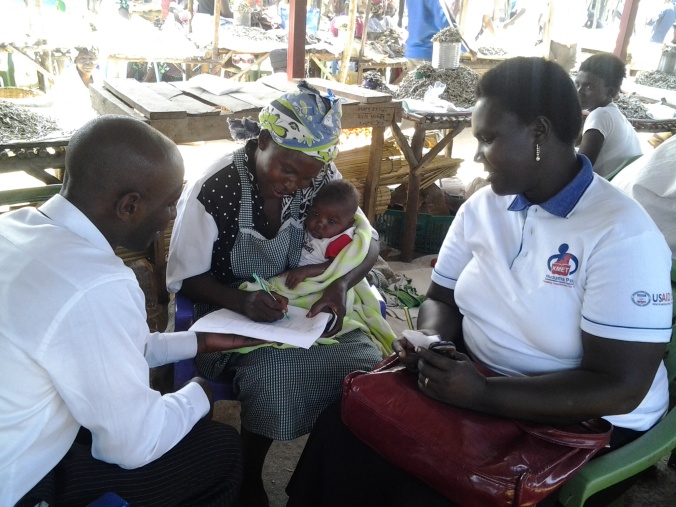Beatrice Akinyi has served as a Demand Creation Officer at the APHIAplus Health Communications and Marketing Program for 3 years. She shares experiences, challenges and lessons she has encountered in the field as she carries out health promotion in the remote areas of Kenya.
As a Demand Creation Officer covering parts of Southern Nyanza and South Rift Valley, I have come in to contact with different communities whose diverse cultures influence their mentality on reproductive health and family planning.
The most common communities I interact with include the Luo, Abagusii, Kalenjins and Maasai thus giving me quite a vast understanding of the diverse cultures and their attitudes towards family planning.
In Giribe, Migori County we noted that most of Huduma Poa mobilization meetings would be attended majorly by men and the same was noted by health workers during house visits where men would speak and dominate discussions on family planning on behalf of their wives. The men have the ultimate say and therefore, all decisions are made by men even those that do concern the woman.
It was heart wrenching to find that girls as young as 14 are married and by age 18, most of them have about 2 to 3 children. On event days, the women would show up late in the afternoon because their husbands are not for the idea of family planning and would therefore double their duties at home before they are finally released.
Every societal group is fighting to have a piece of the Kenyan political power pie. It came to our attention that most communities see numbers as a visible proof of political power and they improperly believe that family planning stands in the way of having key political figures elected from their region. We found this to be a tough wall to crumble since it has been etched in their minds for so long. With such kind of mentality, it takes extra effort and patience to change the community’s attitudes towards family planning.
These communities operate under set rules; for example, in the Maasai community, one is not allowed to question a woman on the number of children she has therefore posing quite a challenge in probing for information during counseling. Women in these areas tend to be quite submissive and loyal to the laws of the land making counseling even more difficult.
Well, there’s a silver lining in every dark cloud, in some of the communities, we receive heroic reception when they finally realize the benefits contraceptive information has had in their families and the community at large.
Community Health Workers have come in handy in achieving such results as they continually do follow ups and information sharing even in the rigid communities; helping women and men to gradually embrace family planning.
Lessons:
Being a Program Officer I have learnt that it is fruitful to reach out to community members through the Ministry of Health and local leaders as one is able to work along with other development partners and have the goodwill of the government.
Participating in activities such as community meetings and dialogue and stake holders’ action days also gives one an upper hand in winning the community’s trust.
Finally, organizing a series of health talks helps communities to gradually open up to new ideas and share their views on each. This kind of healthy discussion builds trust between community and the field officers as well as among themselves.

